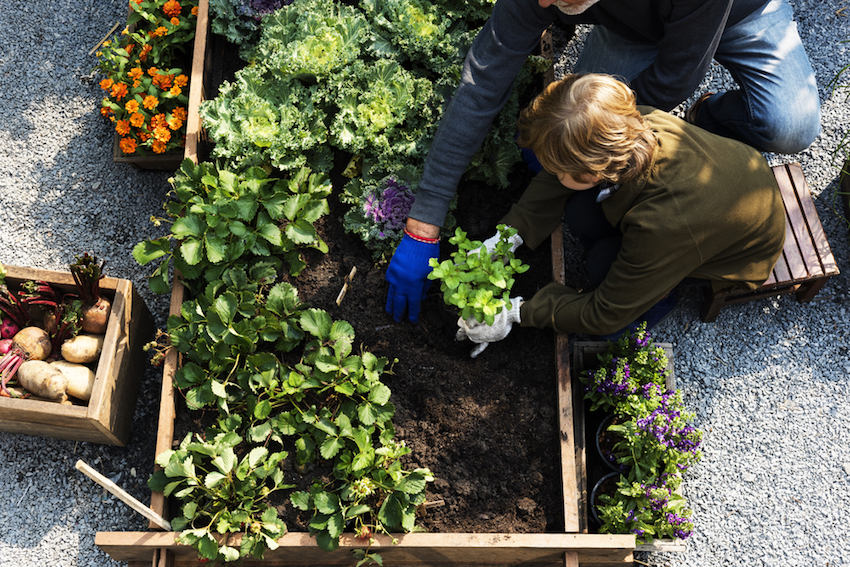
Welcome to the world of organic gardening, where nature’s secrets unravel in every seed that sprouts, every plant that flourishes, and every harvest that delights. In this article, we will delve into the art and science of organic gardening, and discover how it can nourish not only your plants but also your senses and the environment. As we embark on this journey, we invite you to join us in exploring the sustainable practices that make organic gardening a truly rewarding experience.
At the heart of organic gardening is a deep-rooted philosophy that champions harmony and balance. It is a way of nurturing the soil, plants, and ecosystems without the use of synthetic chemicals or genetically modified organisms. While this approach may seem rooted in the past, it is more relevant and vital than ever in today’s world. Taking inspiration from nature, organic gardening embraces the cycles and rhythms that have shaped life on our planet for millennia.
Kellogg Garden Products, a family-owned and operated company with a rich history spanning four generations, has been at the forefront of organic gardening. Their unwavering commitment to quality and sustainability has helped countless gardeners turn their pieces of land into vibrant and thriving havens. Drawing from their expertise, we will uncover the secrets to successful organic gardening, enabling you to create flourishing gardens that not only feed your body but also nourish your soul.
So, whether you are a seasoned gardener looking to deepen your understanding of organic practices or a beginner eager to embark on a greener journey, join us as we unlock the secrets of organic gardening. Together, we will cultivate a greener world, one sustainable garden at a time.
Benefits of Organic Gardening
Organic gardening offers a multitude of benefits for both the environment and our health. By prioritizing natural methods and avoiding the use of synthetic chemicals, organic gardening promotes a harmonious balance between plants, animals, and the soil. Here are some key advantages of embracing organic gardening practices.
1. Environmental Sustainability
Organic gardening is an environmentally sustainable approach that helps preserve the delicate balance of ecosystems. By avoiding pesticides, herbicides, and synthetic fertilizers, organic gardeners protect beneficial insects, birds, and other wildlife from harm. This promotes biodiversity and ensures a healthier environment for all.
2. Healthier Soil
One of the fundamental principles of organic gardening is maintaining the health of the soil. By utilizing compost, organic matter, and natural fertilizers, organic gardeners enhance soil fertility and structure. This results in healthier plants with improved nutrient absorption, ultimately leading to higher yields and stronger resistance to pests and diseases.
3. Safer and Tastier Produce
With organic gardening, you can enjoy the satisfaction of growing your own food while having peace of mind about its safety. Since organic gardening avoids the use of synthetic chemicals, the produce grown in organic gardens is free from harmful residues. This means you and your loved ones can enjoy fruits, vegetables, and herbs that are not only safer but also known for their exceptional flavor and nutritional value.
As you can see, organic gardening brings with it a wide range of benefits, from promoting environmental sustainability to producing healthier and tastier produce. By embracing organic gardening practices, you can contribute to a greener and more sustainable future.
The History of ‘Kellogg Garden’ Products
In the world of organic gardening, ‘Kellogg Garden’ Products has flourished as a family-owned and operated company with a captivating history that spans four generations. What started as a humble venture has now become a renowned name in the world of sustainable gardening practices.
The tale begins with the Kellogg family, who, with their deep understanding and love for the land, ventured into the realm of organic gardening. It was their unwavering belief in the power of nature’s wisdom that laid the foundation for ‘Kellogg Garden’ Products.
Through relentless dedication and a steadfast commitment to quality, ‘Kellogg Garden’ Products have managed to capture the hearts of gardeners and enthusiasts alike. Their products have become synonymous with sustainable and eco-friendly gardening practices, making them a household name for enthusiasts across generations.
‘Kellogg Garden’ Products is a product of passion and innovation. The company’s vision was to create a range of natural and organic gardening products that would not only enhance the health and vitality of plants but also protect the environment. Today, the legacy of the Kellogg family lives on, as ‘Kellogg Garden’ Products continues to be a trusted partner for those who value the importance of organic gardening.
Stay tuned for the next section of this article, where we delve deeper into the secrets of organic gardening and unveil the tips and techniques that can help you transform your garden into an oasis of green goodness.
Tips for Successful Organic Gardening
- Choosing the Right Plants and Seeds
Selecting the appropriate plants and seeds is essential for successful organic gardening. Look for varieties that are known to be resistant to pests and diseases, as this will reduce the need for chemical interventions. Additionally, opt for organic or heirloom seeds to support biodiversity and maintain the integrity of your organic garden.
- Nurture Healthy Soil
Building and maintaining healthy soil is a fundamental aspect of organic gardening. Use organic matter such as compost, leaf mulch, and well-rotted manure to enrich the soil with valuable nutrients and improve its structure. This will promote strong root development and enhance the overall health of your plants.
- Practice Companion Planting
Companion planting involves strategically placing different plants together to maximize their growth and deter pests naturally. For instance, planting marigolds alongside your vegetables can help deter harmful insects. Research which plants thrive together and take advantage of the benefits of companion planting in your organic garden.
Remember, organic gardening is a harmonious way to grow plants and contribute to the health of the environment. By following these tips and adopting sustainable practices, you can create a thriving organic garden, free from synthetic chemicals and pesticides. Happy gardening!

